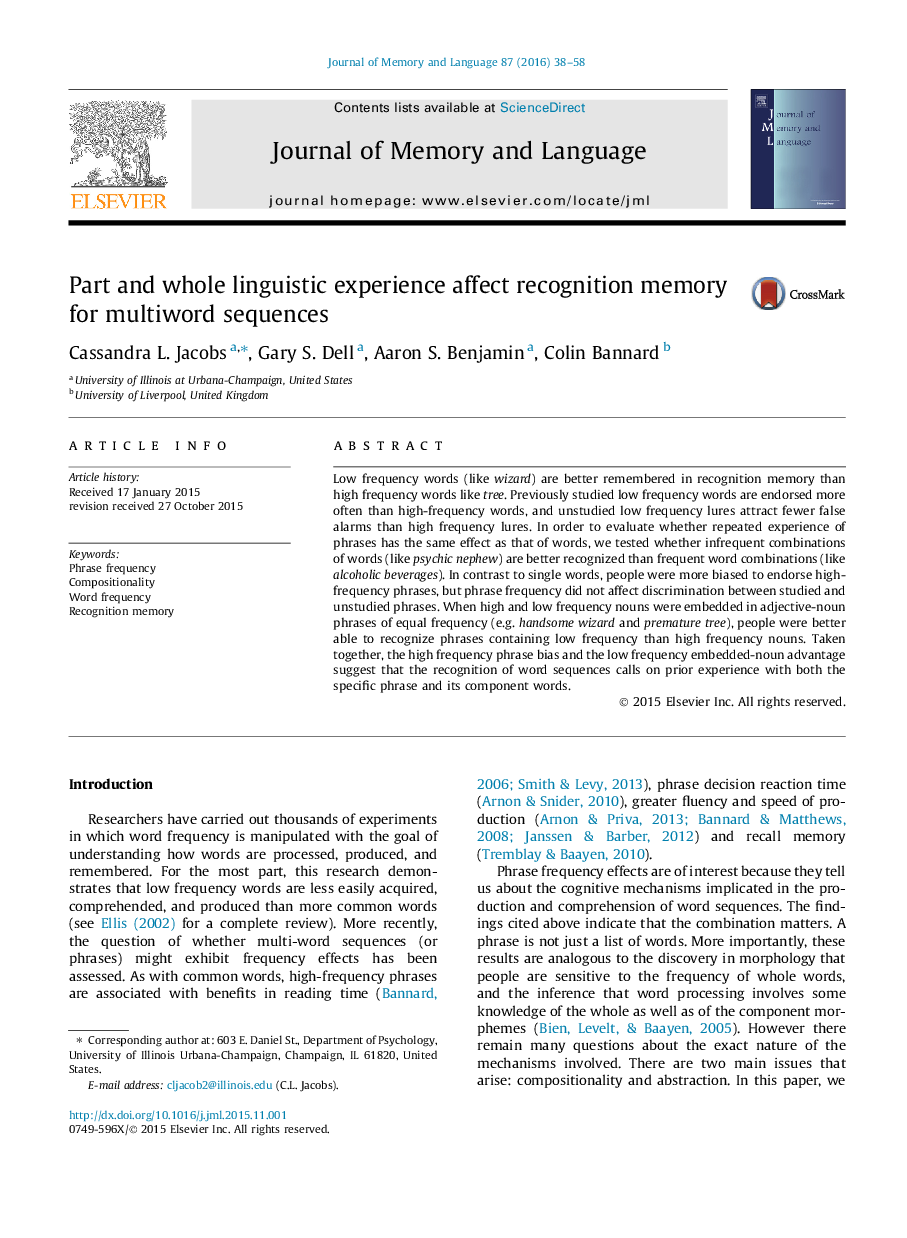| کد مقاله | کد نشریه | سال انتشار | مقاله انگلیسی | نسخه تمام متن |
|---|---|---|---|---|
| 7296965 | 1474632 | 2016 | 21 صفحه PDF | دانلود رایگان |
عنوان انگلیسی مقاله ISI
Part and whole linguistic experience affect recognition memory for multiword sequences
دانلود مقاله + سفارش ترجمه
دانلود مقاله ISI انگلیسی
رایگان برای ایرانیان
کلمات کلیدی
موضوعات مرتبط
علوم زیستی و بیوفناوری
علم عصب شناسی
علوم اعصاب شناختی
پیش نمایش صفحه اول مقاله

چکیده انگلیسی
Low frequency words (like wizard) are better remembered in recognition memory than high frequency words like tree. Previously studied low frequency words are endorsed more often than high-frequency words, and unstudied low frequency lures attract fewer false alarms than high frequency lures. In order to evaluate whether repeated experience of phrases has the same effect as that of words, we tested whether infrequent combinations of words (like psychic nephew) are better recognized than frequent word combinations (like alcoholic beverages). In contrast to single words, people were more biased to endorse high-frequency phrases, but phrase frequency did not affect discrimination between studied and unstudied phrases. When high and low frequency nouns were embedded in adjective-noun phrases of equal frequency (e.g. handsome wizard and premature tree), people were better able to recognize phrases containing low frequency than high frequency nouns. Taken together, the high frequency phrase bias and the low frequency embedded-noun advantage suggest that the recognition of word sequences calls on prior experience with both the specific phrase and its component words.
ناشر
Database: Elsevier - ScienceDirect (ساینس دایرکت)
Journal: Journal of Memory and Language - Volume 87, April 2016, Pages 38-58
Journal: Journal of Memory and Language - Volume 87, April 2016, Pages 38-58
نویسندگان
Cassandra L. Jacobs, Gary S. Dell, Aaron S. Benjamin, Colin Bannard,